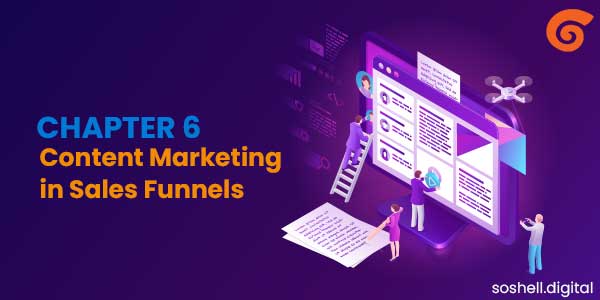Guiding Leads from Awareness to Conversion
Introduction
In the digital age, where consumers have more choices and information at their fingertips than ever before, content marketing has emerged as a powerful tool for guiding prospects through the complex journey of a sales funnel. By creating and distributing valuable, relevant, and consistent content, businesses can attract, engage, and nurture leads at each stage of the funnel, ultimately driving conversions. In this article, we’ll explore how to effectively leverage content marketing to propel leads from awareness to conversion.
The Role of Content in the Sales Funnel
Before delving into content creation strategies, let’s briefly examine the various stages of the sales funnel:
- Awareness: Prospective customers become aware of your brand, product, or service. At this stage, they are seeking information and solutions to their pain points.
- Interest: Leads express interest in your offerings. They seek more in-depth information to understand how your product or service can address their specific needs.
- Consideration: Prospects evaluate your offerings alongside competitors. They are looking for evidence and social proof that your solution is the best fit for their problem.
- Intent: Leads are ready to take action. They may be comparing pricing, reading reviews, or seeking final reassurance before making a decision.
- Conversion: The lead becomes a customer by making a purchase or taking another desired action, such as signing up for a newsletter or requesting a demo.
- Loyalty: Delighted customers can become loyal advocates who not only make repeat purchases but also refer others to your business.
Content Strategies for Each Funnel Stage
1. Awareness
- Educational Blog Posts: Create informative blog content that addresses common pain points and questions in your industry.
- Infographics: Visual content can quickly convey complex information and grab attention on social media platforms.
- Videos: Short explainer videos or how-to guides can engage a wide audience on platforms like YouTube.
2.Interest
- In-Depth Guides: Provide comprehensive guides, eBooks, or whitepapers that dive deep into relevant topics.
- Webinars: Host webinars to showcase your expertise and engage prospects in real-time discussions.
- Case Studies: Share success stories and case studies that highlight how your offerings have solved specific problems.
3. Consideration
- In-Depth Guides: Provide comprehensive guides, eBooks, or whitepapers that dive deep into relevant topics.
- Webinars: Host webinars to showcase your expertise and engage prospects in real-time discussions.
- Case Studies: Share success stories and case studies that highlight how your offerings have solved specific problems.
4. Intent
- Demos and Trials: Offer demos, free trials, or limited-time discounts to incentivize action.
- Live Chats: Implement live chat support to address last-minute questions and concerns.
5. Conversion
- Testimonials and Social Proof: Showcase testimonials and social proof on your checkout or conversion pages.
- Clear Calls to Action (CTAs): Ensure your CTAs are persuasive, clear, and strategically placed.
6. Loyalty
- Email Newsletters: Continue nurturing relationships with valuable content and offers.
- Exclusive Content: Reward loyal customers with exclusive content or early access to new products.
Conclusion
Content marketing plays a pivotal role in the success of modern sales funnels. By tailoring your content to address the needs and questions of leads at each stage, you can guide them smoothly toward conversion and beyond. Remember to monitor the performance of your content using analytics and adapt your strategies based on user behavior and feedback. An effective content marketing strategy can not only increase conversions but also foster lasting customer relationships and brand loyalty.
